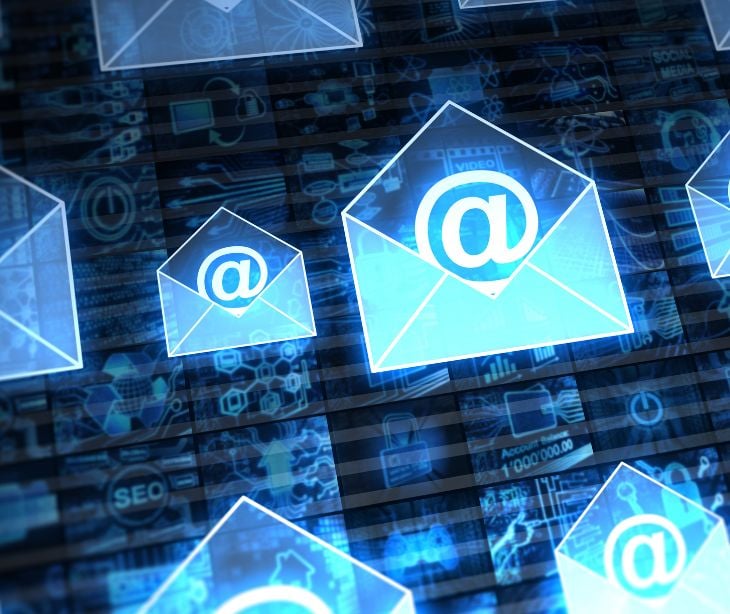
Determining which emails to keep in the healthcare industry requires a thorough approach considering compliance regulations, operational necessities, and technological advancements. Through strong email retention policies, healthcare professionals can maintain patient confidentiality, ensure compliance, and streamline operations within their organizations.
The importance of email retention policies
Establishing strong email retention policies tailored to healthcare should outline retention periods for different types of emails, including those with PHI, administrative communications, patient inquiries, and more. These policies act as a roadmap, ensuring that healthcare professionals retain vital information for the required duration while maintaining compliance.
Go deeper: What are HIPAA's email archiving and retention requirements
How to define which emails require retention
Understanding regulatory requirements
Healthcare professionals operate in a heavily regulated environment. Compliance with laws like the Health Insurance Portability and Accountability Act (HIPAA) safeguards patient data. HIPAA sets guidelines for retaining electronic communications containing patients’ protected health information (PHI). Emails containing PHI must adhere to specific retention periods outlined in HIPAA regulations.
Balancing business relevance with retention
While compliance and patient privacy are important, considering the operational relevance of emails is also necessary. Emails related to ongoing patient treatments, consultations, or critical administrative discussions might have significant business value. Retaining such emails beyond mandatory retention periods can facilitate reference and continuity of care.
Implementing automated retention systems
Leveraging technology to automate email retention processes can streamline compliance efforts. Automated systems equipped with categorization algorithms can swiftly identify emails containing PHI, apply appropriate retention rules, and securely archive them. These systems minimize manual efforts while ensuring adherence to retention policies.
Regular review and updates
Healthcare regulations evolve, and so should email retention policies. Regular reviews of policies ensure alignment with updated regulations, technological advancements, and changing organizational needs.
Educating healthcare staff
Effective implementation of email retention policies relies on the understanding and compliance of healthcare staff. Conduct training sessions to familiarize employees with retention policies, emphasizing the importance of keeping critical information, identifying sensitive content, and following proper procedures for retention and deletion.
Related: HIPAA Compliant Email: The Definitive Guide
Collaborating with legal and IT teams
Collaboration between healthcare professionals, legal experts, and IT professionals is indispensable in crafting robust email retention strategies. Legal insights ensure compliance, while IT expertise aids in implementing automated systems and safeguarding archived emails.
HIPAA email retention policies
HIPAA mandates stringent requirements for the retention and protection of PHI. Crafting HIPAA compliant email retention policies involves several key considerations:
- Retention periods: Determine specific retention periods for emails containing PHI. HIPAA doesn't specify exact timeframes but requires that covered entities retain records for at least six years from the date of creation or last use, whichever is later.
- Encryption and security measures: Implement encryption for emails containing PHI to ensure secure transmission and storage.
- Access controls: Limit access to PHI-containing emails to authorized personnel only. Use strong authentication methods and role-based access controls to prevent unauthorized access.
- Audit trails and monitoring: Establish audit trails and logging mechanisms to track access to PHI within emails. Regularly monitor these logs to detect any unauthorized access or breaches.
- Disposal policies: Define procedures for securely disposing of emails containing PHI once the retention period expires. Use secure deletion methods that ensure the complete removal of PHI from email systems.
- Training and education: Ensure that employees handling PHI are aware of the proper procedures for retention, encryption, and disposal of emails.
- Business associate agreements (BAAs): If utilizing third-party email service providers or vendors, establish BAAs that outline their responsibilities in handling PHI-containing emails.
- Risk assessments: Conduct periodic risk assessments to identify vulnerabilities in email systems that could compromise the security and privacy of PHI.
- Incident response plan: Develop an incident response plan to handle potential breaches or unauthorized access to PHI within emails. Clearly define steps to mitigate risks and report incidents as required by HIPAA.
- Regular policy reviews: Periodically review and update email retention policies to align with changes in HIPAA regulations, technological advancements, and organizational needs.
Subscribe to Paubox Weekly
Every Friday we'll bring you the most important news from Paubox. Our aim is to make you smarter, faster.



